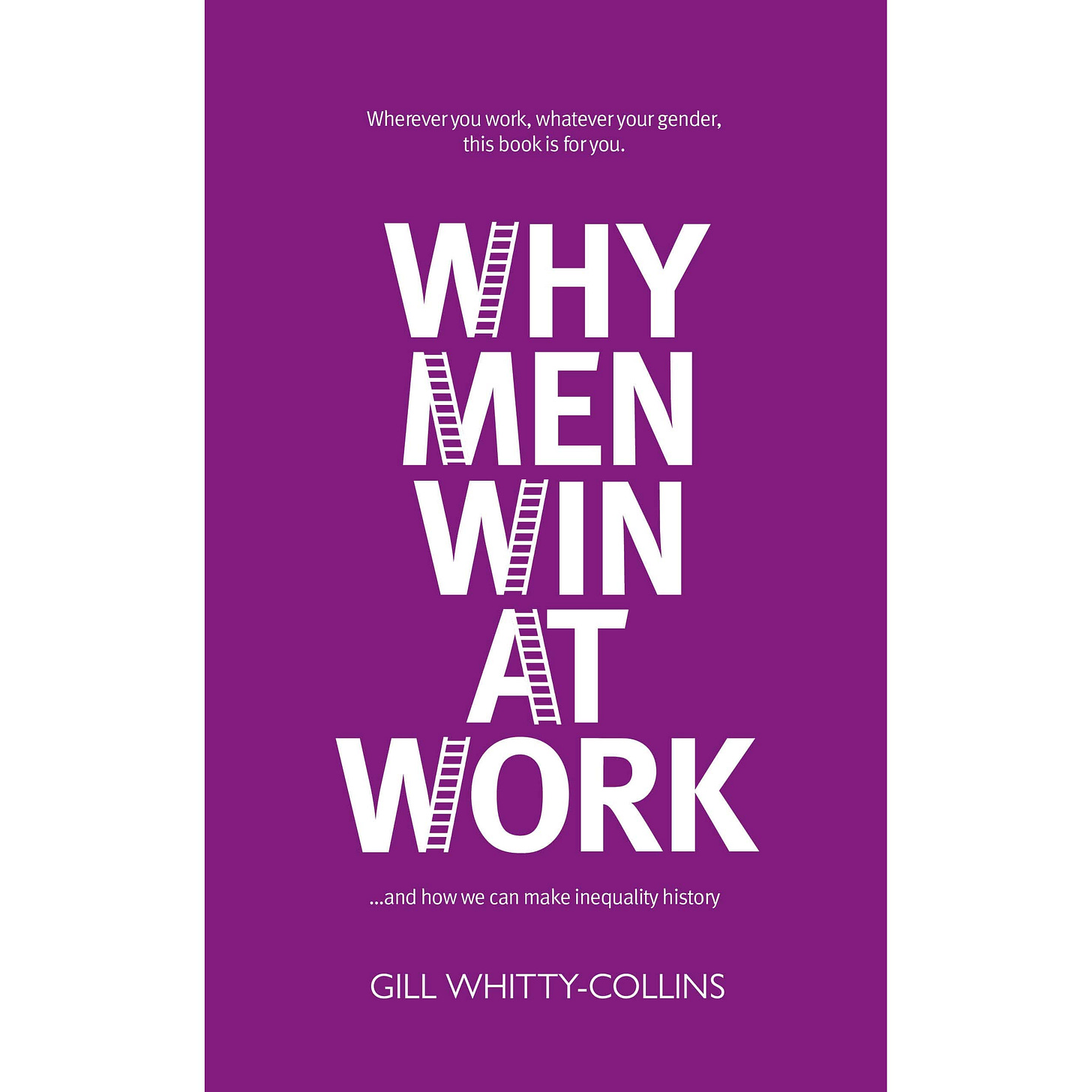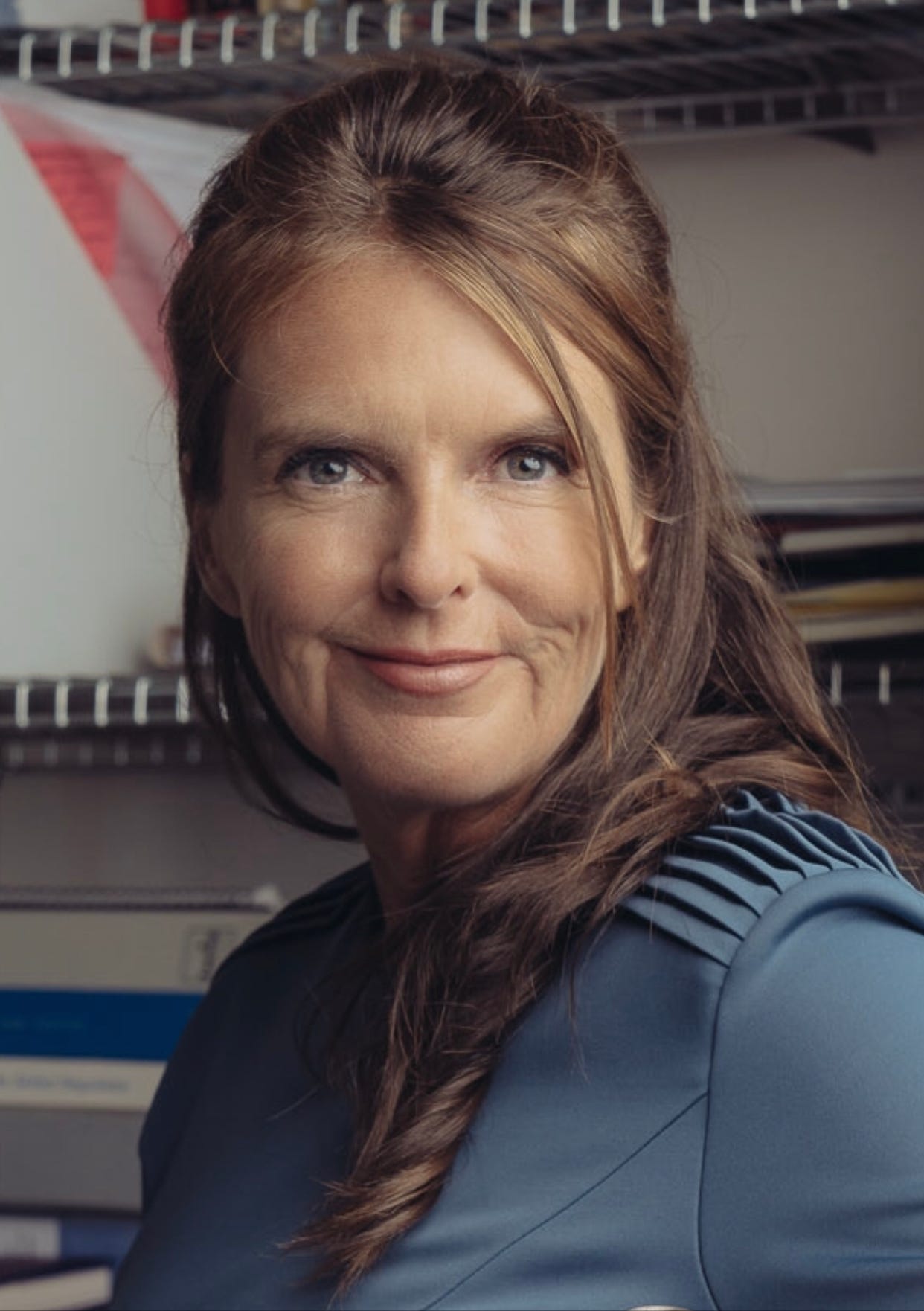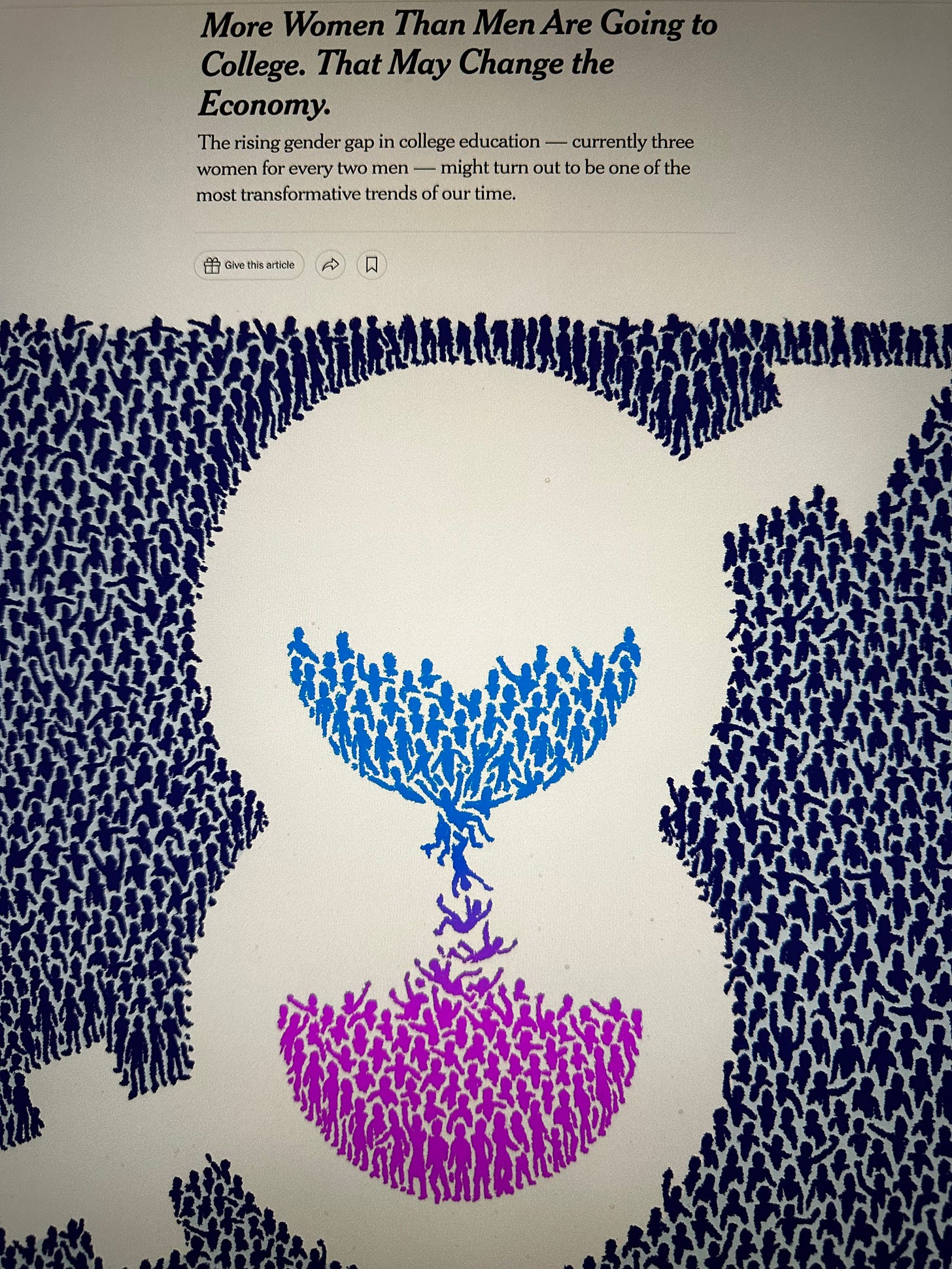Gill Whitty-Collins graduated from Cambridge University and went to work at Procter and Gamble where she rose to Senior Vice President of P&G’s Beauty business overseeing all of Europe, India, The Middle East, and Africa before she retired.
During a conversation about her best-selling book “Why Men Win at Work” Gill made the case that women should have 50% of the most senior roles in companies because women are 50% of the population and the data unequivocally shows that they are equally intelligent and competent and have equal leadership ability. So, targeting 1 woman on a Board or Executive team is simply ‘tick the box’ tokenism and shows that one does not understand or believe that equality and diversity drives stronger teams and better business performance.
Today in business, politics, and many other areas less than ten percent of top leadership are women.
Also, despite half of most new hires being women and many best efforts she does not believe she will see gender equality in her lifetime.
In fact, Gil believes that hybrid work may be a disaster for gender equality (a perspective shared by Tom Standage the Deputy Editor of The Economist who has also been contemplating the issue).
Despite these hurdles Ms. Whitty-Collins reminds us that companies that do not leverage, empower, and promote women are likely to lose in the marketplace and shares best thinking and practices on how to do so.
Gill Whitty-Collins
The challenges women face.
Gill notes four challenges women face in rising to leadership positions.
These are company culture, “confidence vs competence”, the Umbrella theory and the “Mini-Me” syndrome.
Company Culture at the most senior levels are often dominated by men and women to adapt become something they are not and lose their sense of authenticity and comfort. Like a fish who is not aware of water many organizations that are dominated at the very higher levels primarily by men are not aware of the environment they create.
Confidence vs competence: Competence while important is not enough. People feel and like those who are confident. For a variety of reasons women have tended to be less comfortable projecting confidence. If employers do not look behind the “confidence curtain” they may choose the more confident man and overlook the more competent women. This “confidence” is often manifested in meeting rooms where men often dominate the discussion and are seen as stronger leaders and contributors.
Umbrella Theory: According to Whitty-Collins a disproportionate number of women believe “my work should speak for itself” and fail to understand that it is like doing one’s work under an umbrella as management looks down on the troops. It is critical that occasionally the person merchandises themselves and their work. Doing great work is not good enough. The work needs to be visible, and the worker needs to be known. For a variety of reasons men have tended to be more comfortable at doing this.
Mini-me syndrome: This is what Gill calls the tendency of men to support younger versions of themselves, allowing the self-fulfilling prophecy that men are more likely to make it keep fulfilling itself.
It is important that all of us and companies are aware of the impact of culture, the confidence curtain, the umbrella theory, and the mini-me syndrome to detract from goals of ensuring representation of women in the upper echelons.
Why hybrid work may be a disaster for women.
This is provocative because the ‘easy’ perception is that hybrid work is a good thing for women.
And it should be in theory - but the issue is that, for lots of reasons, men will be less likely to leverage it and women will suffer from the resulting presenteeism & visibility bias (the Umbrella Theory multiplied).
During Covid-19 a range of studies showed that women were more negatively impacted by the pressures of caring for family and career and more senior women dropped out of the work force than men did. Here is one of a series of articles on the challenges women face in today’s post Covid environment.
As companies move to hybrid work employers should be conscious of this and have policies & practices in place to ensure it doesn’t become hugely gender biased.
Companies that don’t ensure women make up their fair share of leadership will lose to ones that do.
The companies with the best talent aligned against common goals will win in the future landscape.
With women accounting for half of all talent and the number of working age folks declining in the Western World, companies who do not leverage the potential of half the work force are likely to suffer.
In addition, the Millennial and Gen-Z employees and recent graduates from schools (where women are enrolling at a higher rate) are looking for future forward companies.
Gill has many more insights and perspective which can be found below. It is thirty minutes that will make you see and think differently about the future of the workplace: (Consider subscribing to What Next? on every major platform. It has world class guests. Is edited down to 30 minutes. And is free. No fees. No ads. )
Rishad Tobaccowala is an author, speaker, educator and advisor who helps people see, think and feel differently about growth. Growth of their business, their teams and themselves. Check out Rishad’s workshops that companies world wide are leveraging to unleash their talent and enhance their productivity: The Workshops. For more about Rishad Tobaccowala click here.





The title of the book is important --- "Why Men Win AT WORK." I think that most of us would struggle with this book if the title was "Why Men Win At Life." With full respect for the issues that get in the way of a woman's opportunity to excel in business, it is not unreasonable to point out that perhaps one of the reasons is that women tend to have a much better and more balanced perspective about how to pursue a fulfilling life and pursue happiness in ways that are NOT defined by the corporate ladder. Men appear to me to be much more ego driven when it comes to success in big corporations and they often miss out on things like their children growing up because of that mindset. Surely, this is a factor in the outcomes being analyzed by Gill Whitty-Collins.
Sad to say but many companies need dot connecting beyond representation that should mirror society. The truth is that idea collision (the kind that drives innovation) happens when as many different types of contributors participate. It’s not just that women are a % of society — it’s that our lived experience (not a monolith but distinctive from men) dimensionalizes ideas in ways that connect with customers and consumers. Great piece, Rishad. As always.